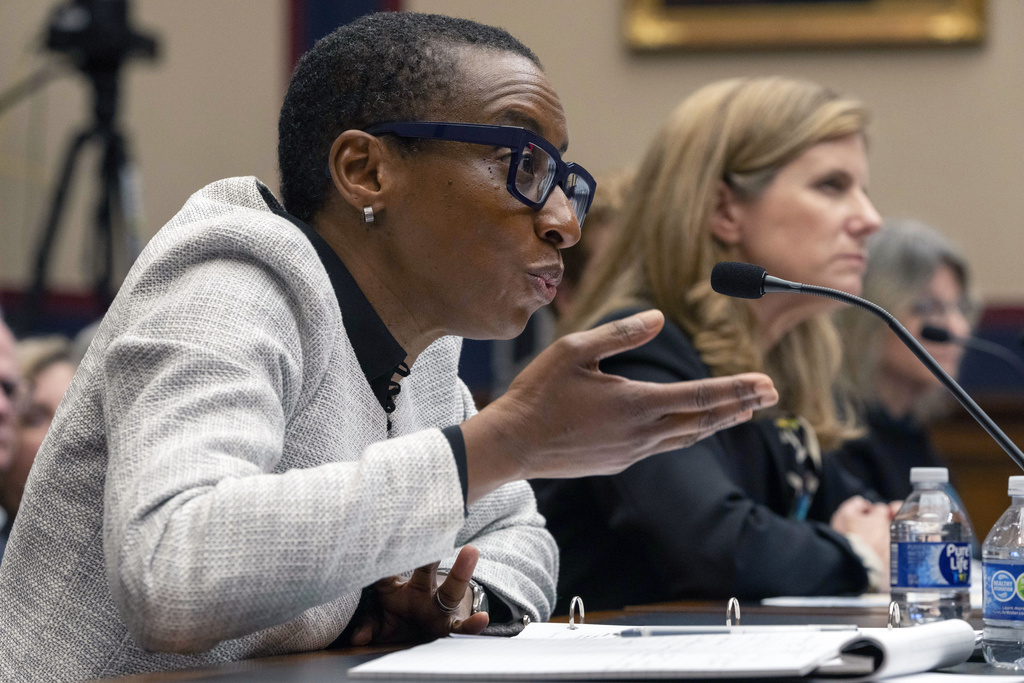Amid a politically tumultuous period, the University of Chicago in 1967 issued the Kalven Report, which laid down guidelines for a university in making pronouncements about controversial political issues. The report was named after the chair of the committee that developed it, Harry Kalven Jr., a noted First Amendment scholar and law professor.
In recent years, speech on college and university campuses and by university administrators has again been in the forefront. The presidents of many such institutions have taken public stances on controversial issues like the Black Lives Matter movement, the attack on the U.S. Capitol on Jan. 6, 2021, and the Israel-Gaza war. The Israel-Gaza war was sparked by a surprise attack on Israel on Oct. 7, 2023, killing about 1,200 citizens and taking others hostage. Some educational institutions have been criticized for not condemning the attacks by Hamas, Gaza’s political leadership which is considered a terrorist organization by the United States, and for not taking firm stances in protecting students from anti-Semitism. Others have called for a cease-fire, and protests have occurred concerning the rising death toll of Palestinians civilians in Gaza in the war.
For university leaders, the conflicting political views in the United States came to a head on Dec. 6, 2023, when a congressional committee called the presidents of the University of Pennsylvania, Harvard, and the Massachusetts Institute of Technology to testify. The presidents of the first two of these institutions subsequently resigned in response to public and alumni pressure over what was considered their weak response to how they were dealing with alleged anti-Semitism on their campuses. (Harvard’s president also faced revelations of plagiarism in her scholarly work.)
Kalven Report: University should not be mouthpiece of dissent
In partial response to the resignations, some commentators have suggested that university administrators should adopt, or practice, the guidelines laid down by the 1967 Kalven Report, after its chair, Harry Kalven, Jr. (a noted First Amendment scholar) that the University of Chicago issued in 1967.
The report identified the mission of the university as “the discovery, improvement, and dissemination of knowledge.” Acknowledging that the university would sometimes, like the Greek philosopher Socrates, stir discontent with existing societal arrangements, the report argued that “The instrument of dissent and criticism is the individual faculty member or the individual student.”
The report argued that the university should be “the home and sponsor of critics” rather than itself serving as the critic or mouthpiece for such dissent. As the home of “a community of scholars,” the university “must sustain an extraordinary environment of freedom of inquiry and maintain an independence from political fashions, passions, and pressures.”
Report: University should be hospitable to wide diversity of views
The report insisted that the best way “to be true to its faith in intellectual inquiry,” was for the university to “embrace, be hospitable to, and encourage the widest diversity of views within its own community.” It further observed that the university was neither a “club,” nor a “trade association,” nor a “lobby.”
Because the university community was so diverse, the report argued that “There is no mechanism by which it can reach a collective position without inhibiting that full freedom of dissent on which it thrives.” To do so would be to censure minorities within this community.
The report indicated that this commitment to institutional “neutrality” stemmed not “from a lack of courage nor out of indifference and insensitivity” but “out of respect for free inquiry and the obligation to cherish a diversity of viewpoints.”
Report: University, however, should defend its values
The report went on, however, to observe that “from time to time instances will arise in which the society, or segments of it, threaten the very mission of the university and its values of free inquiry.” In such cases, the university would be obligated “to oppose such measures and actively to defend its interests and its values.” Similarly, it acknowledged that there were times “involving university ownership of property, its receipt of funds, its awarding of honors, [and] its membership in other organizations” where the university would have to act in its collective capacity. Otherwise, the report recognized “a heavy presumption against the university taking collective action of expressing opinions on the political and social issues of the day, or modifying its corporate activities to foster social or political values.”
Since the report, the University of Chicago has itself taken positions on President Donald Trump’s executive order that sought to ban immigrants from predominately Muslim countries and in favor of extended President Barack Obama’s Deferred Action for Childhood Arrivals (DACA) program (Nietzel 2023), both of which might arguably fall under the exceptions the report recognized. Moreover, one can hardly expect institutions of higher education to remain silent in cases where state or federal laws involving curricula or the selection or retention of faculty members appear to undercut its education mission or interfere with core academic freedoms.
The Foundation for Individual Rights and Expression has endorsed the Kalven Report as a healthy way of responding to modern political controversies (2023).
John Vile is a professor of political science and dean of the Honors College at Middle Tennessee State University. This article was published Jan. 12, 2024.

